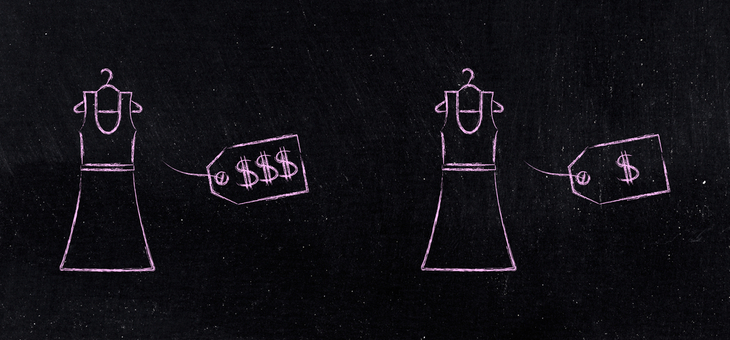Only one in four Australians is aware he or she may be charged different prices to other people when shopping online.
Differential pricing – charging customers different prices for the same product – was considered unfair by 69 per cent of Australians in CHOICE’s Consumer Pulse survey. And 78 per cent of people believe rules or laws should be implemented to limit the practice.
The results back up an investigation of Tinder’s pricing policies, in which CHOICE found the dating behemoth charges “wildly” different prices for some features, including much higher prices for older users.
“The dating platform doesn’t tell customers that it uses their personal information to tailor prices,” that report concluded.
“One subscriber can be charged up to five times as much as another. Prices varied according to age. On average, people over the age of 30 were offered prices that were more than double the prices given to those who were under 30.”
CHOICE says this personalised pricing approach enables companies to maximise how much a customer spends.
“But it’s terrible for customers. We can’t meaningfully compare prices with similar products, and we may be asked to unfairly pay more because of factors out of our control, such as our age, sexuality or gender.”
In 2015, the Executive Office of the US President examined how big data and differential pricing intersect. It concluded that whether differential pricing helps or harms the average consumer depends on how and where it is used.
“In a competitive market with transparent pricing, value-based pricing is unlikely to harm the average consumer, who can easily compare offers and switch sellers. However, when sellers obfuscate by bundling a low product price with costly warranties or shipping fees, use “bait and switch” tactics to attract customers with false promises, or bury important details in the small print of complex contracts, differential pricing can cross the line into fraudulent behaviour.”
The report said that “commercial applications of big data deserve ongoing scrutiny, particularly where companies may be using sensitive information in ways that are not transparent to users and fall outside the boundaries of existing regulatory frameworks”.
Five years on, CHOICE believes stricter controls are necessary in Australia.
“Our research tells us that some company pricing practices are out of step with consumer expectations. Most people don’t think differential pricing is fair and, at minimum, people expect transparency about how prices are set,” said CHOICE editorial director Marg Rafferty.
“Australians are concerned about personal information on social media (61 per cent), income level (61 per cent), browsing habits (60 per cent) and where they live (57 per cent) being used to set different prices.”
The Tinder investigation showed those concerns are well founded.
CHOICE could not find out how Tinder set its prices and the dating service would not let its customers know they would pay a different rate to others.
“Tinder is able to manipulate customers into paying more without them even knowing,” said CHOICE director of campaigns Erin Turner.
“Tinder customers are not told what data about them may be used, where it was sourced, if it is accurate or how it is being used. The company is in control. Not the customer. Tinder is more powerful because of this. It is able to manipulate customers into paying more without them even knowing.
“At CHOICE, we think this lack of information is so egregious that Tinder may be breaching the Australian Consumer Law.”
CHOICE points out that Tinder’s privacy policy and terms of use don’t mention that it uses personal information to price its offerings.
“It’s misleading by omitting one very important fact: this company will use your data against you,” said Ms Turner.
“It doesn’t matter what Tinder intended when it programmed its pricing algorithm, what matters is the impact on customers.
“From our mystery shop we know that Tinder is asking older Australians to pay more for dating services. And while the pattern isn’t as clear for other factors, it could feasibly be using data to make people pay more based on gender, sexuality, or location.
“Without more transparency from Tinder, we cannot confirm if groups of people are facing unfair discrimination.”
CHOICE is calling for changes to laws to cover how companies use data.
“Our consumer regulator, the ACCC, has called for stronger privacy laws for the modern data-driven era, but privacy reforms alone won’t address the root cause of this problem,” said Ms Turner. “We need stronger privacy laws to put customers in control but also something much bigger: we need companies to act ethically when they use the data they have.”
CHOICE says companies must:
- be transparent
- clearly state how customers can control what information is kept and used
- make prices easily accessible to all customers to allow real competition
- treat customers fairly by making sure no-one is unfairly discriminated against.
Were you aware of this practice? Do you scrutinise the terms and conditions before clicking ‘agree’?
If you enjoy our content, don’t keep it to yourself. Share our free eNews with your friends and encourage them to sign up.
Related articles:
https://www.yourlifechoices.com.au/finance/news/products-and-services-best-avoided
https://www.yourlifechoices.com.au/travel/news/dont-fall-for-these-ripoffs
https://www.yourlifechoices.com.au/technology/safety-online/are-dating-apps-safe

